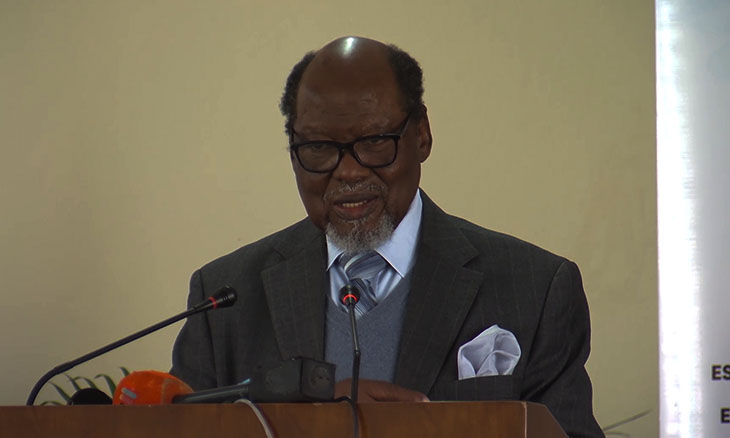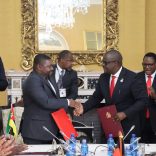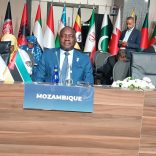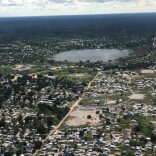Mozambique and Malawi sign three bilateral agreements, Chakwera lauds 50 years relationship
Mozambique: Poverty, illiteracy, insurgency new threats to peace – ex-president | Watch

Photo: O País
Former Mozambican president Joaquim Chissano on Wednesday pointed to poverty, illiteracy and terrorism as “new threats” to peace in Mozambique, noting that armed groups “manipulate and deceive” the poor against society and the state.
“Poor people are easily manipulated and deceived into pernicious initiatives against the state and society,” Chissano declared.
The former head of state (1986-2005) was speaking during the lecture “Mozambique, National Independence: Gains and Challenges in the Concert of Nations”, alluding to the 48th anniversary of independence, which will be celebrated on the 25th of this month.
Joaquim Chissano considered it a mistake to assume that poverty alone triggers wars, such as that of “terrorism” in Cabo Delgado province, in the north of the country, pointing out that there is extreme poverty “in almost all of the national territory”.
“It is better to say that terrorists use the poor, because they find them very vulnerable” to false promises of “employment” and even “formal education”.
Focusing his speech on the issue of “national identity and Mozambicanity”, Joaquim Chissano warned of the existence of national and foreign interests in the chaos in Cabo Delgado province, aiming at the unbridled exploitation of natural resources there.
Other new threats to peace, security and development in Mozambique, he continued, are the impact of climate change, as it can cause worse destruction than wars, as well as environmental crimes, such as poaching, since they decimate ecosystems and population resources.
The former Mozambican president defended a collective education for peace, beginning in the family, going through schools and crossing public and private institutions.
Joaquim Chissano emphasised that “national unity is something that must always be protected, because, otherwise, the bases of the foundations of the Mozambican state will be eroded and the state will collapse”.
“Several states in the world have disappeared, as a result of not taking the question of national unity seriously and into consideration,” he stressed.
The former Mozambican president also advocated the establishment of a long-term national development agenda, through a broad consensus among all social segments, so that the country has a direction, regardless of the party in power.
Cabo Delgado province has been facing an armed insurgency for five years with some attacks claimed by the extremist group Islamic State.
The insurgency has led to a military response since July 2021 with support from Rwanda and the Southern African Development Community (SADC), liberating districts next to gas projects, but new waves of attacks have emerged in the south of the region and in the neighboring province of Nampula.
The conflict has already made one million people displaced, according to the United Nations, and around 4,000 dead, according to the ACLED conflict registration project.












Leave a Reply
Be the First to Comment!
You must be logged in to post a comment.
You must be logged in to post a comment.